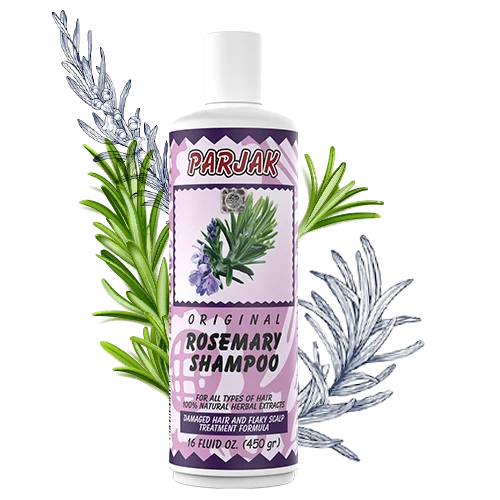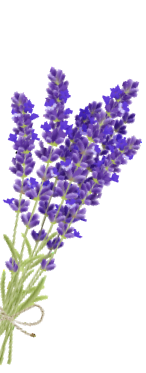Rosemary extract is a natural antioxidant that, due to its anti-fungal properties, prevents the growth of yeasts (which cause dandruff), and also prevents the binding of dihydrotestosterone to hormone receptors, which prevents premature baldness.
Shampoo type: Anti-dandruff, Anti-hair loss
Suitable for : thin hair with dandruff
Volume: 450 grams


Rosmarinic acid in Rosemary extract is an antibiotic that is well absorbed by the scalp when used topically, prevents damage to the hair bulb, and eliminates all scalp infections.
This extract also contains phenolic diterpenes, phenolic acids, and flavonoids, which protect cells and their organic constituent molecules from oxidative damage caused by free radicals and UV radiation.
Rosemary is a good source of iron, calcium, potassium, vitamin C, vitamin A, and vitamin B6 and is also rich in antioxidants, fiber, protein (flavonoids), and carbohydrates. Due to its antimicrobial, anti-mutagenic, and chemical preventive properties, Rosemary is regarded as a valuable medicinal plant in the pharmaceutical and medical industry. The main products of this plant are essential oil and oil. Other products such as shampoo and lotion have also been produced from this plant.
One of the most common causes of hair loss is androgenetic alopecia, which is more commonly known as male pattern baldness, although it can also occur in women. Rosemary oil treats androgenetic alopecia by preventing the side effects of testosterone from attacking hair follicles, which is the cause of this disease. In people with alopecia or androgenetic alopecia, the daily application of rosemary oil to the scalp for six months is more effective than any other expensive medication.
In ancient Greece, it was believed that Salvia Rosmarinus (Rosemary) strengthens the mind and memory. Greek students would wrap wreaths of Rosemary around their foreheads during final exams. Later, this plant was used to preserve memory, and in burial ceremonies, mourners would place fresh Rosemary branches on the tomb so that the deceased person would not be forgotten. In wedding ceremonies, branches of this plant were placed among the bride’s flower bouquet as a sign of loyalty. During the 15th century, people burned branches of this plant in their homes to protect them from the black death (plague). During World War II, rosemary was burned along with cypress to prevent infection. This plant is native to the Mediterranean Sea region. The province of Murcia in southeastern Spain is one of the main producers of rosemary in the world. Today, the Rosemary plant has spread almost all over the world. This plant is very resistant to very cold climates or severe lack of water and can survive for a long time. Rosemary is very slow growing, however, it can live up to 30 years. The nature of rosemary is hot and dry.
Preventing hair loss
Strengthening hair bulb
Treating heavy dandruff
Brightness and easy styling
Hair volumizing and shining
Regulation of scalp oil
Wash your hair every time you shower. Leave the shampoo on the head for 2-3 minutes, and then rinse.

"*" indicates required fields
Arian Shkofa Health Company is one of the members of the Arian group of companies, which is capable of producing, packaging and supplying to the consumer market more than 300,000 tons of Parjak brand shampoo and conditioner, dishwashing liquid and Dorto brand household detergent products.

All rights of this site Parjak